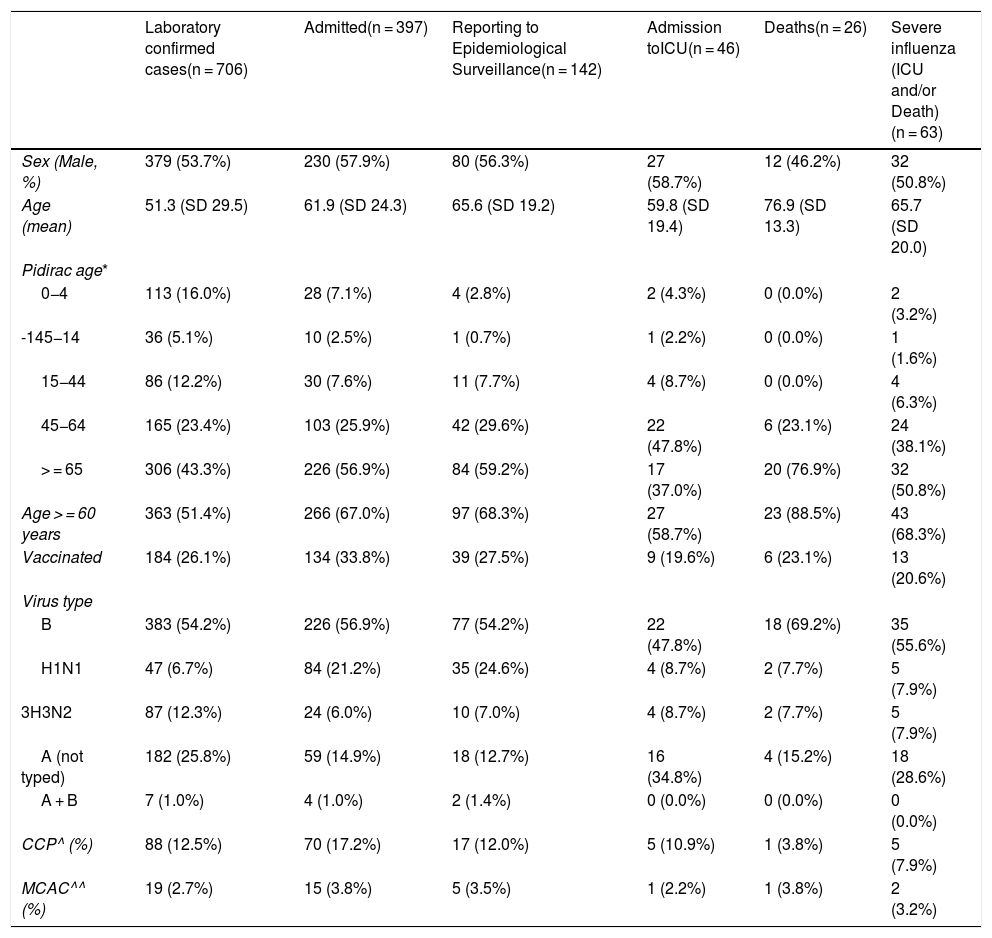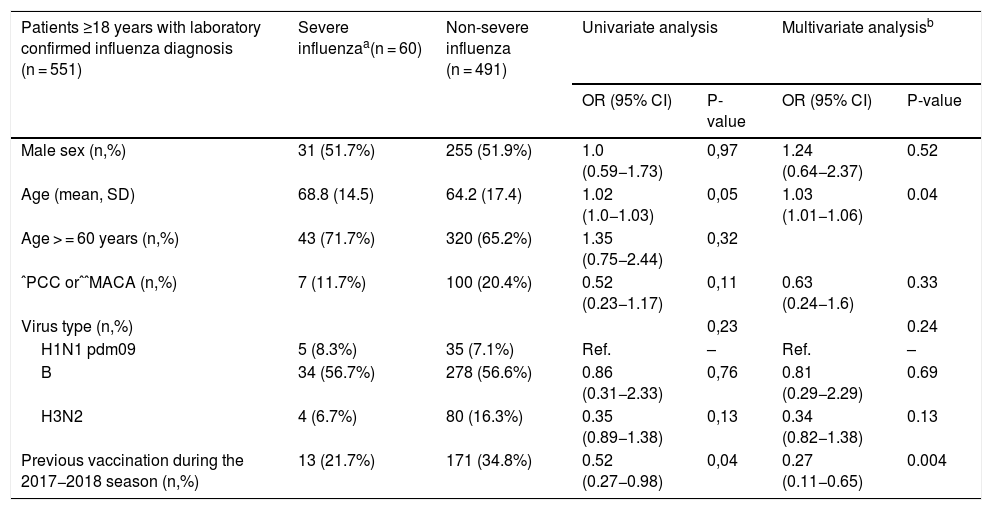The objective of this research was to evaluate the effect of influenza vaccination on the prevention of influenza-related severe cases in adults treated in a third-level hospital during the 2017−18 epidemic season.
MethodologyA descriptive analysis was performed on the entire population of subjects with a laboratory-confirmed influenza test during the 2017/18 season. A severe case was defined as a patient treated in one of the Intensive Care Units (ICUs) and/or death. The effect of the vaccine on the adult population was determined by multivariate logistic regression analysis.
ResultsBetween epidemiological weeks 44/2017 and 19/2018, the hospital's laboratory detected 706 positive samples for influenza virus. Of the 551 confirmed patients aged 18 years or older, forty-three were admitted to one of the ICUs, and 26 died during admission. The explanatory multivariate model has shown that flu vaccination prior to or during the epidemic season was a protective factor for the development of severity [OR: 0.27 (.11–.65, p = .004], adjusted by age [OR: 1.03 (1.01−1.06), p = .04], sex, type of virus (H1N1-pdm09, H3N2 or B virus), Chronic Complex Patient index or Advanced Chronic Disease index.
ConclusionsThe vaccine is a protective factor against the development of severity associated with influenza infection in a season when vaccination did not contain the virus with higher epidemic circulation among the population. Flu vaccination should be recommended annually following the guidelines established by the health authorities.
El objetivo de este trabajo fue evaluar el efecto de la vacunación antigripal en la prevención de casos graves asociados a gripe en pacientes adultos atendidos en un hospital de tercer nivel durante la temporada epidémica 2017-18.
MetodologíaSe realizó un análisis descriptivo con toda la población de sujetos con gripe confirmada por laboratorio en la temporada 2017/18. Se definió caso grave como el ingreso en unidades de críticos o muerte. El efecto de la vacuna en la población adulta se determinó mediante análisis de regresión logística multivariante.
ResultadosEntre las semanas epidemiológicas 44/2017 y 19/2018, el laboratorio del hospital detectó 706 muestras positivas de virus influenza. De los 551 pacientes confirmados de 18 años o más, cuarenta y tres fueron ingresados en alguna de las unidades de críticos del hospital y 26 fallecieron durante el ingreso. El modelo multivariante explicativo mostró la vacunación de la gripe durante la temporada de estudio como factor protector del desarrollo de gravedad [OR: 0,27 (0,11-0,65), p = 0,004], ajustada por edad [1,03 (1,01-1,06), p = 0,04], sexo, tipo de virus (H1N1-pdm09, H3N2 o B) y el estar etiquetado como Paciente Crónico Complejo o Enfermedad Avanzada Crónica.
ConclusionesLa vacuna de la gripe se muestra como factor protector frente al desarrollo de complicaciones en una temporada en la que la estación no contiene el virus que más ha circulado entre la población. Se debe recomendar la vacuna antigripal con periodicidad anual a los grupos de riesgo establecidos por las autoridades sanitarias.
Artículo
Comprando el artículo el PDF del mismo podrá ser descargado
Precio 19,34 €
Comprar ahora










